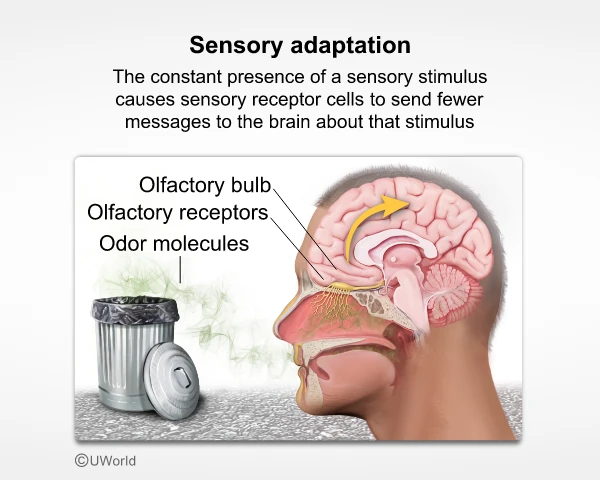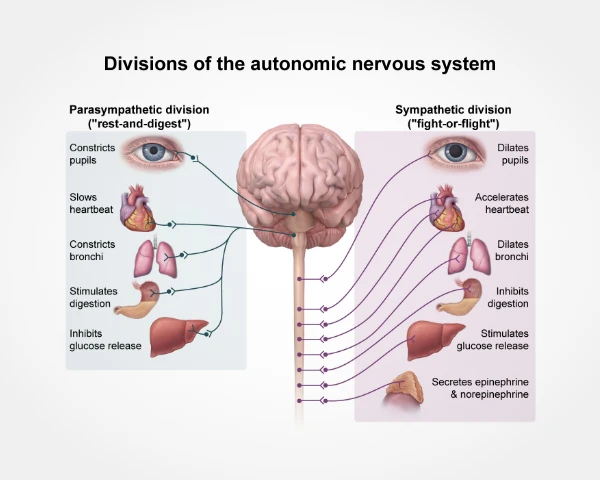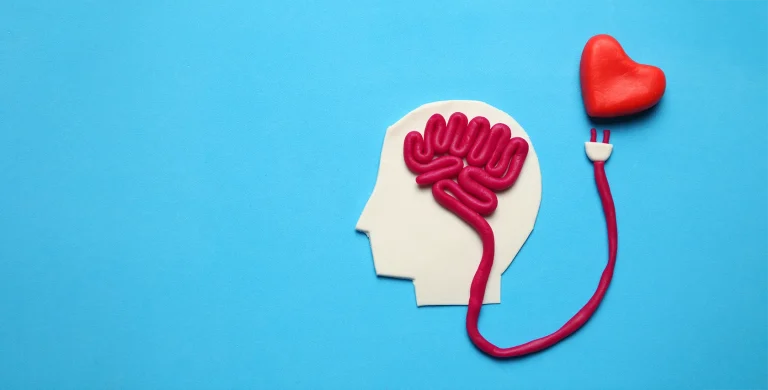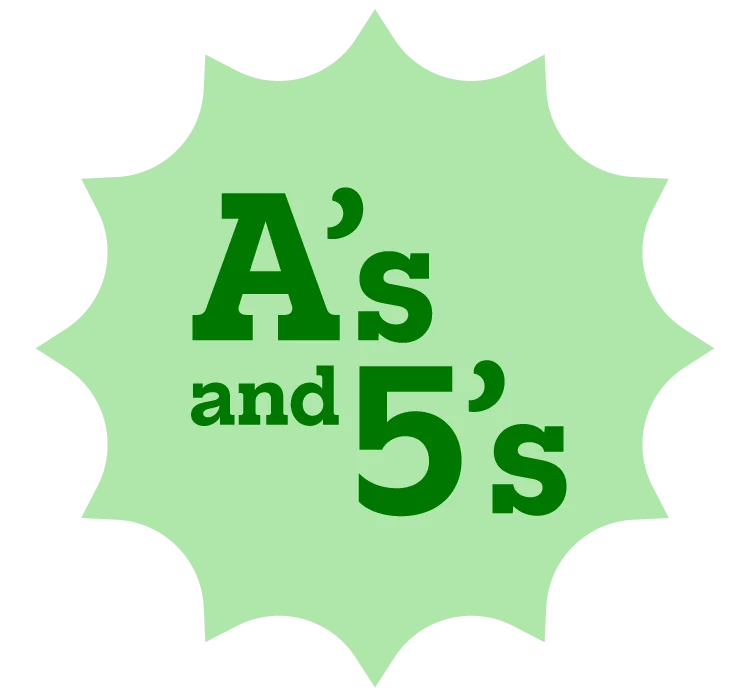To excel on the AP® Psychology exam, you need a strategic approach and consistent effort. Strengthen your areas of improvement, practice with AP-style questions, and use spaced-repetition techniques to retain information effectively. Following are proven AP Psychology exam tips that will help you boost your score and feel confident on test day.
What Does the AP Psych Syllabus Cover?
The AP Psychology exam consists of 2 parts: multiple-choice (MCQ) and free-response (FRQ). The MCQ section includes 75 questions, constituting 67% of your final score. The FRQ section has 2 questions, making up 33% of your final score. Each section is to be completed in separate 1-hour-and-30-minute timeframes.
Here is a breakdown of the AP Psychology units and their weights on the exam.
- Unit 1: Biological Bases of Behavior (15-25%)
- Unit 2: Cognition (15-25%)
- Unit 3: Development and Learning (15-25%)
- Unit 4: Social Psychology and Personality (15-25%)
- Unit 5: Mental and Physical Health (15-25%)
For details regarding the topics and concepts covered in each section, check out our AP Psychology course and exam description (CED).

How to Get a 3, 4, or 5 on the AP Psychology Exam
Scoring high on the AP Psychology exam is achievable with the right preparation strategy. Here are some expert AP Psychology exam tips to help you stay on track and achieve your goal.
- Get the most out of your class: Take a look at key topics before class. Skim your assigned reading, watch related videos, and highlight terms or theories that seem unclear. During class, stay engaged by actively listening, asking thoughtful questions, and taking well-organized notes. If a concept doesn’t click right away, ask your teacher or make a note to revisit it later.
- Start your preparation early: Start studying at least 3 months before the exam. Devise a study plan that begins with an in-depth review of course materials, textbooks, and notes and allows you to break down the extensive content into manageable sections. This gradual approach will support better comprehension and retention, increasing your chances of success on the exam. It will also permit time for revisiting challenging topics and seeking help when needed.
- Focus on targeted review: Prioritize topics you find most challenging. Utilize AP Psychology practice tests and video lessons from quality resources like UWorld to evaluate your progress and address areas of improvement. Fine-tune your knowledge to ensure you're well-prepared. It will help you build confidence and refine your test-taking skills. Remember, a strategic approach always leads to better retention and performance on the exam.
- Strengthen key concepts: Some psychology topics can be tricky to grasp. Use UWorld flashcards to reinforce challenging concepts. The spaced repetition method helps you focus on the areas where you need the most review, making it easier to retain concepts over time. Also, use UWorld digital to consolidate your learning—rewrite your notes, create diagrams, and use mnemonics to remember complex information.
- Make Study Sessions More Effective: Work with classmates to quiz each other, summarize psychological theories, and discuss key experiments. If you're preparing for FRQs, practice writing responses under timed conditions, then review and score each other’s work based on the AP grading rubric.
AP Psychology Quality Study Resources
Feeling lost on how to study for the AP Psychology exam? To streamline your prep, here’s a curated list of top study resources to enhance your learning and boost your exam performance:
- AP Classroom: A College Board® platform with unit guides, practice questions, and assignments.
- AP Daily Videos: Instructional videos by College Board AP educators, covering key exam topics in depth.
- Past Exam Questions: Previous FRQs and official scoring guidelines to familiarize yourself with the exam format.
- Quality Prep Courses: UWorld’s AP Psychology course provides a structured study guide, a detailed question bank, and digital study tools, including flashcards, notebooks, progress tracker, and a built-in calculator.
Using these resources strategically, along with regular practice, will help you build confidence and excel on the exam.
AP Psychology Study Plan and Tips
Effectively preparing for the exam ultimately hinges on having a well-paced AP Psychology study plan. It ensures that you cover all the necessary content, practice regularly, and manage your time efficiently to build a strong foundation of knowledge and skills for success on exam day.
- Begin in February to ensure ample time to cover all units.
- Unit 1 (Biological Bases of Behavior): Spend 1.5 weeks.
- Unit 2 (Cognition): Spend 1.5 weeks.
- Unit 3 (Development and Learning): Spend 2 weeks.
- Unit 4 (Social Psychology and Personality): Spend 2 weeks.
- Unit 5 (Mental and Physical Health): Spend 1.5 weeks.
- Refresh your understanding using your textbook or UWorld’s AP Psychology Study Guide.
- Set aside 2 to 3 short sessions each week to review MCQ-style practice questions.
- Consistently revisit challenging concepts.
- Start timing your MCQs to match exam conditions: Aim for around 1 minute per question.
- Review past FRQs from the College Board to familiarize yourself with potential essay questions.
- Outline and practice writing responses at least twice a month.
- Time yourself to adapt to the exam pace.
- Create and review flashcards daily for key formulas and rules.
- Regularly schedule breaks to stay refreshed — plan a day off each week or take an afternoon off when necessary.
- Start with a general review of course topics, unit-by-unit at a quicker pace.
- Utilize resources such as textbooks, class notes, and course materials for concept refreshers.
- Prioritize completing textbook practice problems and using the UWorld QBank two to three times per week for 20-30 minutes per study session.
- With UWorld: To save time, focus on explanations for missed questions and reviewing the concepts that need the most improvement.
- Units 1–2 (Biological Bases & Cognition): Allocate 1 week. Spend ~3–4 days per unit.
- Units 3–4 (Development/Learning & Social/Personality Psychology): Allocate 1 week. Dedicate ~2–3 days per unit.
- Unit 5 (Mental and Physical Health): Allocate 3–4 days.
- Use any remaining time to review concepts from each unit that you missed previously to reinforce learning.
Kick off your study by tackling a few UWorld AP Psychology MCQs in each topic to spot the ones that are harder to you. Dive into the explanations for any questions you miss. If you’re still feeling shaky, watch a video or review your notes on those tough topics. Then, circle back with more UWorld questions to see how much you’ve improved!
Spend most of your week diving into Psychology FRQs — they're a great way to cover lots of topics at once and really efficient for review. Plus, they make you show your work, which helps you get a solid handle on the whole problem-solving process.
When to Start Preparing for AP Psychology
There’s no universal timeline for AP Psychology prep—every student has different study habits and goals. To help you figure out how to study for AP Psychology effectively, we’ve broken down study strategies based on different types of test takers so you can find the best approach for you.
| Type of Test-taker | Description | Recommended Timeframe |
|---|---|---|
| Busy | Students who have very tight schedules and need longer periods of time to prepare for the exam but shorter sessions that fit seamlessly into their hectic lives. | 180 to 360 days (For those juggling between multiple subjects) |
| At a Plateau | Students who are stuck at specific scores and are looking for targeted practice to work on their areas of improvement and achieve their dream score. | 30 to 90 days (For improving scores by drilling hard questions and fine tuning) |
| Just Getting Started | Students who want to get a feel of the exam by laying the foundation and building their knowledge. | 30 to 90 days (For feeling confident about taking the exam from Day 1) |
| Not a “Good Test Taker” | Students who want to get comfortable with the course content and overcome the pitfalls of MCQs and FRQs with strategic practice. | 180 to 360 days (For navigating trick questions and turning knowledge into high scores) |
| Retaking the Exam | Students who already know their areas of improvement but want to score better than their last attempt with strategic and focused practice. | 30 to 90 days (For turning past mistakes into stepping stones for success) |
| Stressed by the Clock | Students who want to get comfortable with the duration of the exam and avoid common mistakes by developing time management skills. | 90 to 180 days (For managing stress and ensuring peak performance) |
How to Take AP Psychology With Confidence
After months of studying, practice, and dedication, you’re in the final stretch of AP Psychology prep. To ensure you walk into the exam feeling confident and ready, here are some key tips to help you succeed.
- Fuel Your Brain: On the exam day, have a well-balanced diet with proteins, whole grains, and healthy fats to maintain steady energy levels. Stay hydrated and avoid energy drinks or excessive caffeine, which can lead to crashes. Aim for at least 7-8 hours of quality sleep each night leading up to the exam. Avoid cramming late at night—it’s better to rest and wake up refreshed.
- Stay Calm & Confident: Engage in relaxation techniques such as deep breathing, meditation, or light exercise to manage stress. Visualize yourself succeeding on the exam.
- Pack Smart: Prepare your materials the night before—pencils, erasers, an approved calculator, water, snacks, and your admission ticket. Double-check your checklist so you don’t forget anything.
- Dress Smart: Wear layers to adjust to the temperature in the exam room. Bring a sweater if needed.
- Use Your Breaks Wisely: Step outside for fresh air, stretch, drink water, and eat a small snack to maintain energy levels.

Frequently Asked Questions (FAQs)
Which AP Psychology units are the most difficult to learn?
How to Self-Study for AP Psychology?
References
- AP Psychology: About the Course. (2025). apstudents.collegeboard.org. Retrieved February 21, 2025 from https://apcentral.collegeboard.org/courses/ap-psychology
- AP Psychology: About the Exam. (2025). apstudents.collegeboard.org. Retrieved February 21, 2025 from https://apcentral.collegeboard.org/courses/ap-psychology/exam
- AP Psychology Course and Exam Description. (Fall 2024). apcentral.collegeboard.org. Retrieved February 21, 2025 from https://apcentral.collegeboard.org/media/pdf/ap-psychology-course-and-exam-description.pdf
- Trevor Packer (@AP_Trevor). (June 20, 2024). x.com. Retrieved February 21, 2025 from https://x.com/AP_Trevor/status/1803095344588156984
Read More Related Articles
Learn how AP Psychology is graded! Explore the scoring system for multiple-choice and free-response questions to optimize your exam performance.
How to Approach AP Psychology MCQsNervous about AP Psychology multiple-choice questions? Get expert tips on pacing, problem-solving, and recognizing common question patterns to score higher.
How to Answer AP Psychology FRQsStruggling with AP Psychology FRQs? Learn expert strategies to structure your answers, apply key concepts, and earn maximum points on free-response questions.
Best AP Psychology Prep Course ReviewSearching for top AP Psychology prep courses? Read this review to compare the best courses and choose the perfect one for your success.
Best AP Psychology Study Guide ComparisonCompare the best AP Psychology study guides! See how Kaplan, Barron's, and Princeton Review stack up against UWorld for comprehensive exam prep.
How to Self-Study for AP PsychologyWant to ace AP Psychology on your own? Follow this expert self-study guide with tips, tricks, and tools to prepare effectively for the exam.


